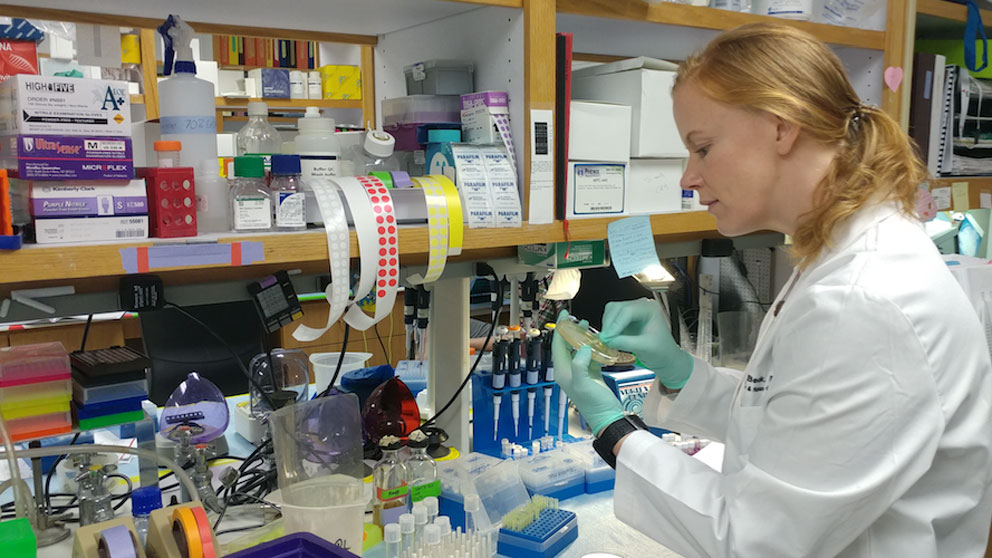
This summer, Christine Beck, Ph.D., a genomics expert in transposable elements and their impact on human disease, will join The Jackson Laboratory (JAX) for Genomic Medicine and UConn Health as their fifth joint-appointed faculty.
Transposable elements (TEs) — which are also referred to as “jumping genes” or transposons — are DNA sequences that change location within the genome, and may make up around 40 percent of the human genome.
Today, scientists like Beck are exploring the role TEs may play in human disease development.
Geneticist Barbara McClintock discovered TEs in the 1940s, but despite assertions by McClintock and researchers like Roy Britten and Eric Davidson who suggested TEs might play a regulatory role, for decades they were commonly thought of as “junk DNA.”
“At JAX, we’re focused on improving human health and Dr. Beck’s appointment adds an important piece to the puzzle of understanding human diseases,” said Charles Lee, Ph.D., FACMG, director and professor at JAX. “We’re very pleased to round out our team with an expert in transposable elements – someone dedicated to discovering how TEs lead to disorders like cancer.”
Beck comes to JAX and UConn Health from Baylor College of Medicine, where she completed her postdoctoral work as a research fellow in the laboratory of Dr. James R. Lupski, M.D., Ph.D. She was recently awarded a K99/R00 Pathway to Independence Award from the National Institutes of Health/National Institute of General Medical Sciences.
“We are very excited to have Dr. Beck join our UConn Health/JAX collaborative world to help further advance genomic science and medicine,” says Dr. Bruce T. Liang, dean of UConn School of Medicine. “I have no doubt that Dr. Beck’s research will help advance Connecticut further to the forefront of scientific discoveries on human genetic variants that lead to disease.”
Beck earned her Ph.D. in human genetics at the University of Michigan, and her B.S. in biochemistry at Iowa State University.
“I’m very excited to be joining both JAX and UConn. They have amazing teams of scientists with common interests and research goals,” Beck said. “I think this environment has great colleagues who make for an ideal sandbox, and I’m looking forward to building my lab to investigate the role transposable elements play in genomic rearrangements and human disease.”
About UConn Health
UConn Health is Connecticut’s only public academic medical center. Based on a 206-acre campus in Farmington, UConn Health has a three-part mission: research, teaching and patient care. Home to the UConn School of Medicine, School of Dental Medicine and UConn John Dempsey Hospital with over 5,500 employees supporting nearly 1,000 students, over 600,000 annual patient visits, and innovative scientific research contributing to the advancement of medicine. For more information, visit health.uconn.edu.
About The Jackson Laboratory
The Jackson Laboratory is an independent, nonprofit biomedical research institution based in Bar Harbor, Maine, with a National Cancer Institute-designated Cancer Center, a facility in Sacramento, Calif., and a genomic medicine institute in Farmington, Conn. It employs 1,900 staff, and its mission is to discover precise genomic solutions for disease and empower the global biomedical community in the shared quest to improve human health. For more information, please visit www.jax.org.